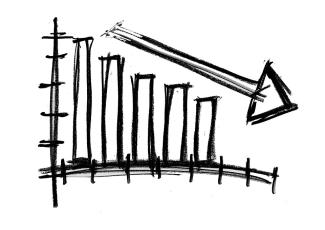
4 Ways to Prepare for the Next 2008
The 2008 financial crash in the United States wiped out trillions in wealth and value, both among homeowners and investors. The problem with market collapses and other issues, as The Balance notes, is that crises happen quickly, are unpredictable, and imminent signs of failure are usually difficult to see. It is less a question of will another crash happen, and more a situation of when the next crash will happen. While the market roared through 2017 and into early 2018, corrections are a natural part of the market. Here are four ways you can prepare yourself for the arrival of the next crash like 2008.
Start an Emergency Fund
Set aside cash within an emergency fund that you do not spend on anything other than emergency situations. This is not your vacation savings, a down payment for an upcoming home payment, or even a partial down payment for a new car. This fund is explicitly for the unforeseen future, should the economy collapse and/or your job wind up in jeopardy. The common rule of thumb here is to set aside three months of your income in an emergency savings. If you really want to cushion your future, Business Insider suggests you aim to have six months of income set aside in an emergency fund.
Keep Cash on Hand
Wealth and liquidity do not always walk hand in hand. For most Americans, wealth is often tied up in assets that are not readily available as cash. If you lost your job tomorrow, it would not be easy (or smart in most cases) to sell your home to cover your expenses. That emergency savings fund mentioned above should be a standard savings account that you can access easily and readily withdraw cash from without penalty to cover your expenses in the event of market turmoil.
Generate Additional Sources of Income
Investopedia suggests Americans consider generating new sources of income in the face of a market crash. This is best done in advance to ensure you have some stream of income coming into your accounts, should you lose your primary job. You can sell possessions you no longer use, freelance in the evenings, or pick up a weekend job to help generate more income. Although these funds might seem insignificant, this money can help you cover expenses or even build up your emergency fund in advance while still working full time in your normal role.
Get Yourself Out of Debt
Perhaps the most important thing you can do is cut down on your existing debt. For example, if you have credit card debt you are likely paying very high interest rates every month that sap your current financial strength just to maintain a debt line. Paying down reasonable debts, such as credit cards, car loans, or student loans, can help you save money in the long run by removing those sources of interest fees and charges that drain your monthly income.
The next 2008 could be just around the corner or years away. There is no knowing when it will arrive, so it is best to begin preparing now with smart choices and reasonable financial behaviors.
For assistance coming up with a plan in case of financial or economic crisis, call Hughes Warren.

